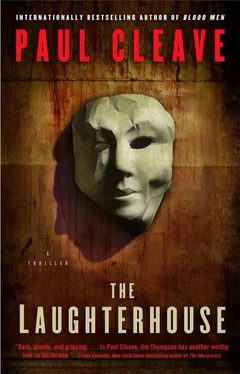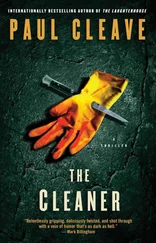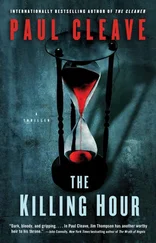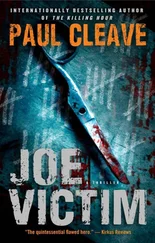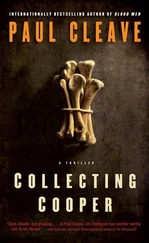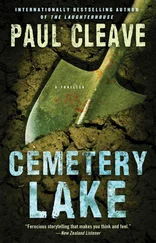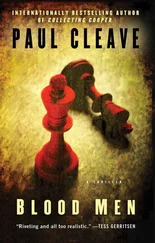Paul Cleave - The Laughterhouse
Здесь есть возможность читать онлайн «Paul Cleave - The Laughterhouse» весь текст электронной книги совершенно бесплатно (целиком полную версию без сокращений). В некоторых случаях можно слушать аудио, скачать через торрент в формате fb2 и присутствует краткое содержание. Год выпуска: 2012, ISBN: 2012, Издательство: Atria Books, Жанр: Триллер, на английском языке. Описание произведения, (предисловие) а так же отзывы посетителей доступны на портале библиотеки ЛибКат.
- Название:The Laughterhouse
- Автор:
- Издательство:Atria Books
- Жанр:
- Год:2012
- ISBN:9781451677959
- Рейтинг книги:5 / 5. Голосов: 1
-
Избранное:Добавить в избранное
- Отзывы:
-
Ваша оценка:
- 100
- 1
- 2
- 3
- 4
- 5
The Laughterhouse: краткое содержание, описание и аннотация
Предлагаем к чтению аннотацию, описание, краткое содержание или предисловие (зависит от того, что написал сам автор книги «The Laughterhouse»). Если вы не нашли необходимую информацию о книге — напишите в комментариях, мы постараемся отыскать её.
The Laughterhouse — читать онлайн бесплатно полную книгу (весь текст) целиком
Ниже представлен текст книги, разбитый по страницам. Система сохранения места последней прочитанной страницы, позволяет с удобством читать онлайн бесплатно книгу «The Laughterhouse», без необходимости каждый раз заново искать на чём Вы остановились. Поставьте закладку, и сможете в любой момент перейти на страницу, на которой закончили чтение.
Интервал:
Закладка:
I leave the park as another car arrives. It comes straight at me with its lights off. I swerve out of the way and almost hit a tree. Maybe it’s another PI coming here to eat a burger or a couple of kids wanting to fool around.
I head back out into the wet streets, and as often happens to me at this time of night, I start thinking about my wife, and about my daughter, and I can feel my mood darkening. Sometimes, even three years after the accident now, I just start to cry. I don’t feel tired anymore, I don’t feel hungry-sometimes like this I don’t really feel anything. I wipe a finger at my eyes before they start leaking, and suddenly I’m compelled to go and see my little girl, to make sure she’s safe. I drive to the cemetery and park by the church next to another car. I make the trek toward my daughter’s grave in the misty rain, thinking about the two dead men and wondering what, or more accurately who, it was they had in common.
CHAPTER NINE
Caleb’s wife won’t appreciate the flowers. She hated him in the end, had to, otherwise she never would have left him. She acted like it was all his fault, everything, their dead daughter, all that blood he spilled at the slaughterhouse. He just couldn’t help himself, couldn’t she see that? It was his job to protect his family, it was his job as a father, as a husband, and as a man. If he couldn’t do that, then it was his job to make people pay. It’s basic genetics. So there are flowers for her and flowers for his children and God how he misses them, how he would do things differently if he could, how he’d make them safe.
Fifteen years-his son would have been fourteen, his daughter twenty-five. A multitude of possibilities-he could have been a grandfather, his daughter could have been a doctor or an artist, his son a straight-A student in school with dreams of playing in a band. With them dying so young, those possibilities remain timeless, endless.
The cemetery is cold and wet and his feet sink a little into the soft lawn as he stands motionless by the graves. Three graves in total, one of them empty and waiting for him. Then he can lie next to his children, murdered fifteen years ago, his wife murdered too by a bunch of people who didn’t care enough to make a difference. They were ignorant and lazy and stupid.
His wife hated him for what he did. The coroner said she took over fifty pills. That’s a statistic he has to carry with him, one that shows how desperate she was to leave him. He was no use to her back then. He was in jail when she died, he’d gone there without a trial, having confessed to the police and to the courts, asking for leniency-after all he couldn’t control himself. Only he wasn’t given any. Instead he was given fifteen years and a week into that sentence his parents came to tell him his wife and unborn son were dead.
His parents. He misses them. Each of them died because of illnesses that are easy to get the more years you see after seventy. They used to come and see him in jail. For the first ten years it was every week without fail. Then age crept up on them and they’d miss a week here or there, then a few weeks in a row. He wasn’t there for them when they died. Wasn’t there to keep his wife alive. His family has died around him and all he can do for them now is check off names. The first time he even saw his wife’s and daughter’s graves was the day he came out of jail. He had to ask the priest at the adjoining church for directions.
“It’s always harder on the ones left behind,” Father Jacob had said.
“You couldn’t be more right,” Caleb had answered.
The cemetery could double as a maze. There are trees and hedges cordoning off sections of graves, plots cut off by archways and stone pathways. The church is hidden from the cemetery behind a horseshoe ring of trees, only the very top visible over them, though more becoming visible as autumn takes away the foliage. He looks at the gravestones and wonders how many people out here have similar stories to his own and comes to the conclusion none of them do.
“I’m sorry,” he tells his wife, and he truly is, and if he could take it all back, he would. There’s a cool wind whipping rain off the grass and from the trees into him and he begins to shiver.
“I really am,” he repeats, and he doesn’t know what else to say. She can’t hear him. Coming here was pointless, really. The dead can’t talk, they can’t listen, they can’t hear, not in this state anyway. But he does have a message for them-one he can’t give them after he dies. For what he’s done, when all of this is over he won’t be able to join them. He knows he’ll be going somewhere different from them. He has to tell them how sorry he is. And he wants them to know he can’t make up for it, but he can hurt those who let it happen. Including himself.
And he must admit, he wants them to forgive him. They won’t-he knows that-and it’s painful when the psychics toy with that emotion.
“I just wish that. .” he says, but no other words come. There are many things he wishes for.
He walks away from the grave, his shoes soaking up more water, the maze slowing him down, his body heavy with thoughts of the past as he trudges through wet grass and gardens on his way back to the parking lot.
CHAPTER TEN
I’m not alone when I get back to my car from seeing my daughter’s grave. There’s a guy sitting in the car I parked next to, trying hard to get his car started. The engine isn’t quite turning over but he keeps giving it a go. He looks up at me and there’s not much light coming from the street and none coming from the church, so it’s hard to get a good look at him, but what I can see doesn’t look good. There are scars on his face, and his nose looks like it’s been broken several times. He sees me looking and there’s nothing I can do except offer to help, whereas what I’d rather do is get into my car and get the hell out of here. Then I figure for this guy to be out here at this time of night he’s suffering a loss, maybe a similar loss to my own.
“You need a hand?” I ask him.
“I don’t know much about cars,” he tells me, climbing out of it. He must be around fifty, with a thick head of gray hair that is flattened down.
“Nor do I,” I admit, “but I’ve got a set of jumper cables that might do the trick.”
I open the trunk of my car and fish out the cables. We pop the hoods and attach our respective ends. I think if there was a competition to see who had the worse car, we’d both win. I start my car and my engine barely turns over, and for a second I think we could both be stranded here, but then it catches and I put my foot on the accelerator a few times.
I walk around my car while the other guy climbs into his. It takes a couple of tries, but then his engine starts. He guns it a few times, then climbs out and from the light of the cars I can get a better look at him. He looks like he’s been beaten up, not recently, but a long time ago, and many times too. We unhook the cable and I wrap it up and throw it into the trunk.
“I appreciate it,” he says.
“No problem,” I say, and instinct kicks in, and next thing I know I’m offering him my hand.
He looks at it for a few seconds. He seems unsure what to do, and I’m starting to feel like an idiot, but then he reaches out and shakes it. I shake his back, and he winces a little.
I quickly let go. “Sorry,” I tell him.
“Not your fault,” he says, massaging his fingers. “Just an old injury.”
“Well, don’t be surprised if you have to return the favor in the next day or two,” I say, looking at my car.
“I’m not even sure the car is going to last another day or two,” he answers.
The moment is over, and it’s nice to have met a stranger who wasn’t a jerk and who, at this time of night, wasn’t trying to steal my wallet. We both acknowledge the moment and climb into our cars. He gives a small wave as he drives away, then I’m back on the street, feeling good about helping somebody.
Читать дальшеИнтервал:
Закладка:
Похожие книги на «The Laughterhouse»
Представляем Вашему вниманию похожие книги на «The Laughterhouse» списком для выбора. Мы отобрали схожую по названию и смыслу литературу в надежде предоставить читателям больше вариантов отыскать новые, интересные, ещё непрочитанные произведения.
Обсуждение, отзывы о книге «The Laughterhouse» и просто собственные мнения читателей. Оставьте ваши комментарии, напишите, что Вы думаете о произведении, его смысле или главных героях. Укажите что конкретно понравилось, а что нет, и почему Вы так считаете.
